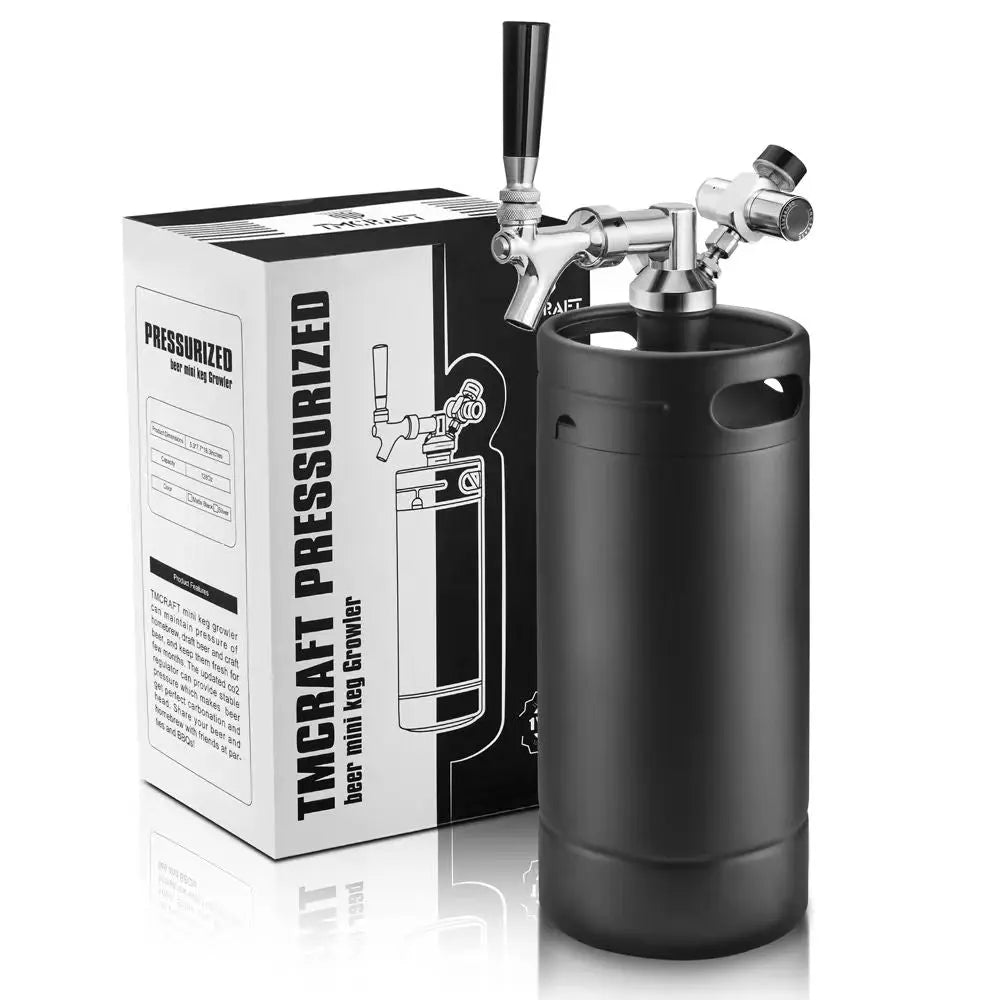
Does a Beer Keg Growler Need to be Refrigerated? Unveiling the Best Storage Practices
have gained popularity as a convenient way to bring draft beer home from your favorite brewery. However, there is often confusion about whether these keg growlers need to be refrigerated to maintain their freshness and quality. In this blog article, we will delve into the topic, discussing the impact of temperature on keg growlers, the benefits of refrigeration, and alternative storage options for those without immediate access to a refrigerator.
Understanding the Importance of Temperature for Beer:
Temperature plays a pivotal role in preserving the flavor, aroma, and overall quality of beer. Understanding the impact of temperature on beer is crucial to determining the best storage practices for beer keg growlers.
The Benefits of Refrigeration:
Refrigeration is generally recommended for beer keg growlers to maintain optimum freshness. By storing the keg growler in the refrigerator, you can slow down the aging process of the beer, preserving its taste, carbonation, and overall quality. Refrigeration also helps to prevent the growth of bacteria, which can compromise the beer's flavor.
Alternative Storage Options:
If refrigeration is not readily available, there are alternative storage options to consider for beer keg growlers. One option is to store the growler in a cool, dark place, away from direct sunlight and heat sources. A basement or a cool pantry can provide suitable conditions for short-term storage. However, it's important to note that without refrigeration, the beer may lose its freshness and carbonation more quickly. If you use the
, they may help you to keep fresh and temperature.
Factors Affecting Beer Stability in Keg Growlers:
Several factors can impact the stability of beer in beer keg growlers, such as the type of beer, the specific brewing process, and the condition of the keg growler itself. Higher alcohol content beers and those with stronger hop profiles tend to have better resistance to temperature fluctuations and can withstand non-refrigerated storage for longer periods.
Tips for Maximizing Keg Growler Shelf Life:
To maximize the shelf life and quality of your keg growler beer, consider the following tips:
Keep the beer keg growler sealed tightly to prevent oxygen from entering and carbonation from escaping.
Minimize the amount of time the keg growler is exposed to air by consuming the beer within a reasonable time frame.
If storing the keg growler without refrigeration, consider using an insulated container or cooler bag to help maintain a cooler temperature.
While refrigeration is generally recommended for keg growlers to preserve the freshness and quality of the beer, alternative storage options exist for those without immediate access to a refrigerator. By understanding the impact of temperature on beer and considering factors affecting beer stability, beer enthusiasts can make informed decisions when it comes to storing their keg growlers. Whether you choose refrigeration or an alternative method, the key is to maintain a consistently cool temperature to ensure an enjoyable drinking experience. So, the next time you bring home a keg growler, give it the proper care it deserves to savor every sip of your favorite draft beer.

